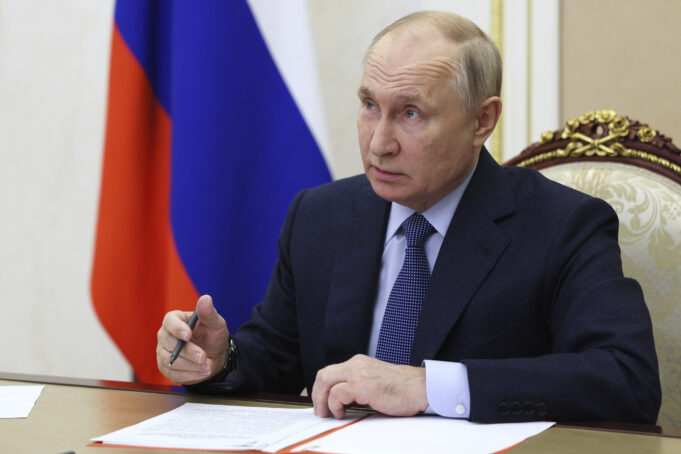Russia has pulled out of a decades-long arms non-proliferation treaty with European countries amid rising tensions with Brussels over the Ukraine conflict.
Russia’s Foreign Ministry said on Nov. 7 that Moscow had formally withdrawn from the 1990 Treaty on Conventional Armed Forces in Europe (CFE).
The CFE treaty had placed limits on the number of conventional weapons that could be deployed by NATO and Warsaw Pact countries West of the Ural Mountains.
“On Nov. 7, the procedure established by the CFE for Russia’s withdrawal from the treaty was completed,” the Russian Foreign Ministry said in a statement.
“Thus, the international legal document … has finally become history for Russia,” it said in the statement.
Russia’s President Vladimir Putin had signed a law formally exiting the CFE in May.
The Kremlin said at that time that the Russian leader’s signature was a formality because the treaty was “already dead.”
The Foreign Ministry pointed out on Nov. 7 that “even the formal preservation of CFE has become unacceptable from the standpoint of Russia’s fundamental security interests.”
Back in April, Russia’s Deputy Foreign Minister Sergey Ryabkov said certain manifestations of hybrid war used by the United States and its allies against Moscow were completely unprecedented and did not exist during the Cold War.
Responding to a question during an interview with Sputnik Radio, Ryabkov said Russia and the U.S. had “already passed through” the Cold War stage in their relations and were now in the “phase of a hot conflict”.
“I think we have already passed this period. Now we are in the phase of a hot conflict with the United States. We are witnessing the direct involvement of that country in a hybrid war with Russia on various fronts,” he warned.
The senior Russian diplomat also warned that the continued U.S.-led Western countries’ all-out support for Ukraine was increasing the chances of a nuclear conflict. (PressTV.ir)













